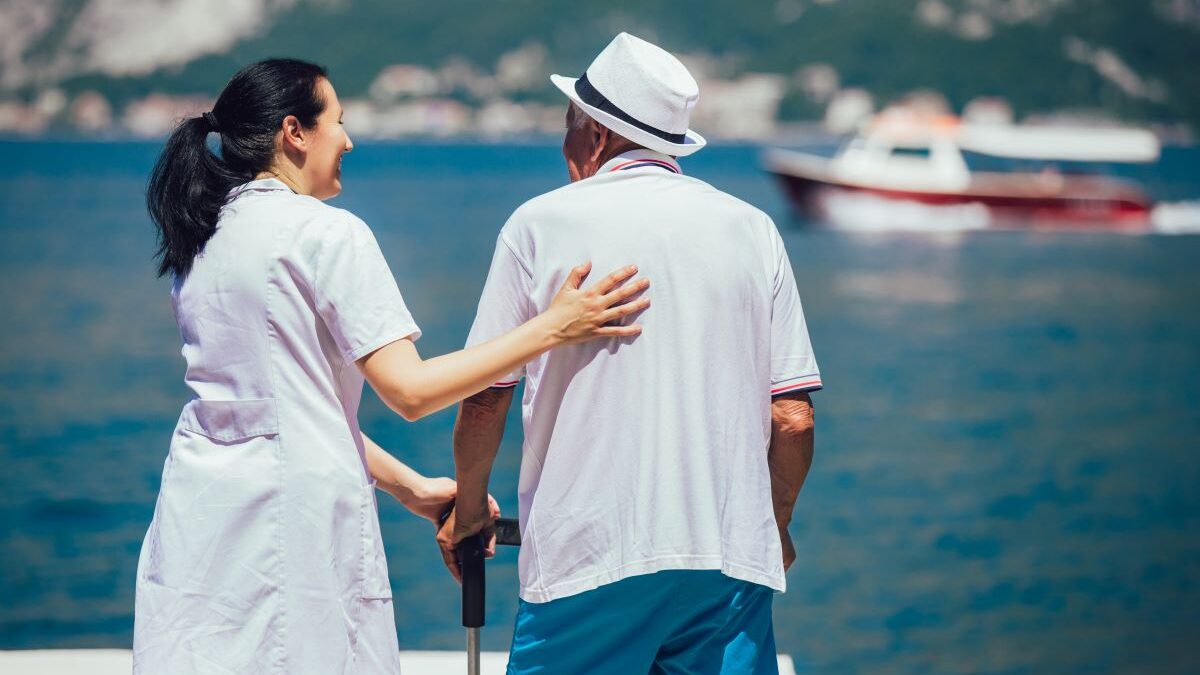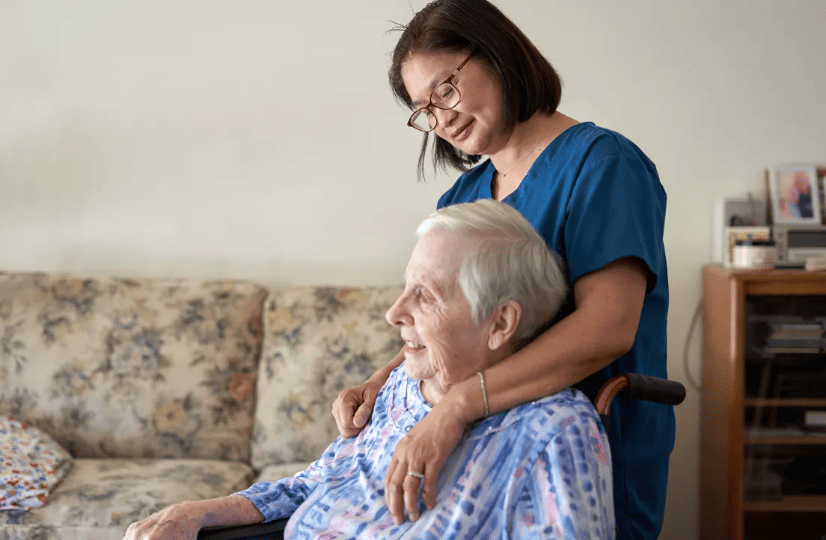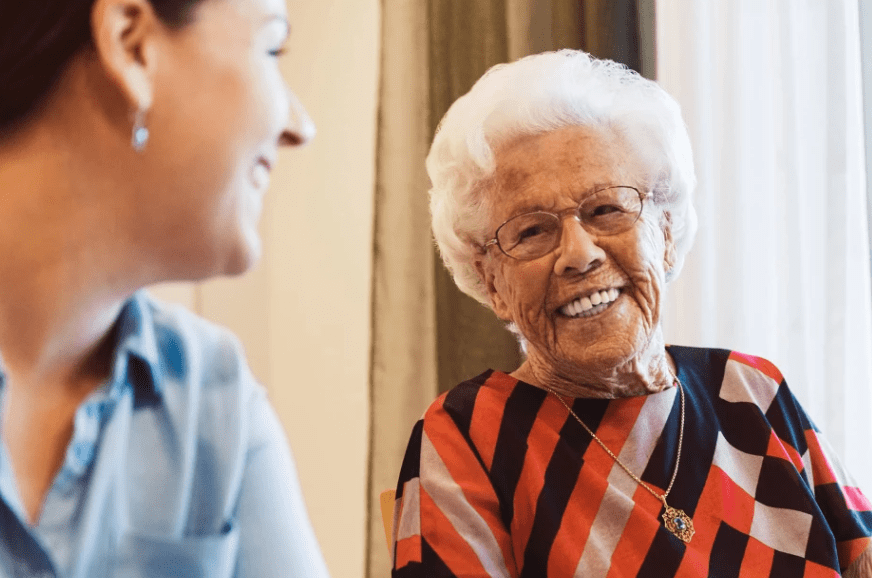- 5 Star Home Care COVID-19 Update PLEASE CLICK HERE
Heat Risk Among the Elderly—How Hot Is Too Hot?
- Home
- BLOG
- Companion Care Philadelphia
- Heat Risk Among the Elderly—How Hot Is Too Hot?
As summer temperatures soar, so do heat-related health risks, especially among seniors. It’s no secret that our bodies change as we age, but what many do not know is that elders may experience trouble adjusting to abrupt changes in temperature or may fail to notice when they have become dangerously overheated or dehydrated. 
Whether you or someone you know is a senior living independently, now is the ideal time to review some of the most common heat-related health risks affecting elders—and to share some tips for staying healthy when the mercury climbs.
Why Heat Is Particularly Dangerous for Seniors
Most of us take for granted the human body’s ability to maintain and regulate temperature (maintaining this equilibrium is part of what’s called homeostasis). We all sweat when we’re warm and shiver when we’re cold, but the physiologic picture becomes more complex for elders, whose bodies may lose their ability to self-regulate temperature effectively.
The results of overexposure to heat can be severe, and may include:
• heat exhaustion
• dehydration
• cardiovascular problems
• unconsciousness
• and even death
Elders are also more likely to have pre-existing medical conditions that may exacerbate the negative effects of heat exposure. Some prescription medications can also negatively affect the body’s ability to regulate and maintain a stable temperature. Combine these risks, and it’s easy to see why seniors and their caregivers should be especially vigilant for signs of heat-related illness. Other risk factors include obesity, use of non-prescribed drugs, and alcohol use.
Spotting the Signs of Heat Stress Early
One way to address the increased risk for heat-related illness among elders is to understand the physiologic signs. These may include:
- Heat rash — a mild skin irritation caused by excessive perspiration.
- Muscle cramps — often caused by loss of critical electrolytes (such as sodium and potassium), often as a side-effect of dehydration.
- Heat exhaustion (or heat stroke) — when perspiration fails to cool the body adequately, body temperature can rise quickly to dangerous levels. Symptoms include throbbing headache, rapid pulse, shallow breathing, body temp > 103ºF, nausea, confusion, muscle twitches, loss of consciousness, and seizures. If untreated, heat sickness can be fatal.
Preventing Heat-related Illness among Seniors
Heat-related illness does not require extreme temperatures. It can occur during what most would consider a pleasant summer day, if other conditions (such as dehydration or pre-existing health problems) are present. So while one person may be asymptomatic, another may already be exhibiting signs of heat-related stress.
So how can you help prevent heat-related health problems before they occur? Here are some tips you use as a guide…
- Stay hydrated. Hydration is a key weapon in the fight against heat-related health problems. Dehydration can result in electrolyte imbalances (depleted sodium and potassium levels) and can greatly exacerbate the effects of heat sickness. Adults should consume 5 to 6 8oz glasses of water (not coffee, alcohol, or sweetened soft drinks) daily.
- Keep your body cool. When air-conditioning isn’t an option, it’s important to take other measures to keep your body cool. These can include: wearing light clothing (cotton or linen), keeping sources of fresh air open, and using fans to circulate stagnant air.
- Avoid strenuous activities. Physical activity demands more energy and raises body temperature. Don’t attempt strenuous exercise or work during the hottest part of the day.
- Take a cool shower or bath. One quick way to reduce body temperature is to take a cool (not cold) shower or bath. Lightly towel dry or air dry afterward to allow for maximal body cooling.
How Home Care Can Help
Today, many independently living seniors are turning to in-home caregivers to help them manage their daily lives. A caregiver can help monitor each client’s health by…
- Preparing nutritious meals
- Ensuring healthy water consumption
- Checking that all prescription meds are taken as directed
- Assisting with bathing
- Assisting in dressing (e.g., choosing clothes appropriate to the weather)
An in-home caregiver also serves as another set of eyes—someone who knows what’s “normal” for your loved one, and can easily spot signs of dehydration or heat illness before they become severe.
We hope you find this article helpful. If you or someone you know is an independently living senior, contact 5 Star Home Care today and discover how in-home care can promote healthy living and increase quality of life. We’re eager to hear from you. Please contact us today.
5 Star Home Care serves the Philadelphia metro area, including Bucks, Chester, Delaware, and Montgomery Counties. Contact us today, and discover what peace of mind feels like.






